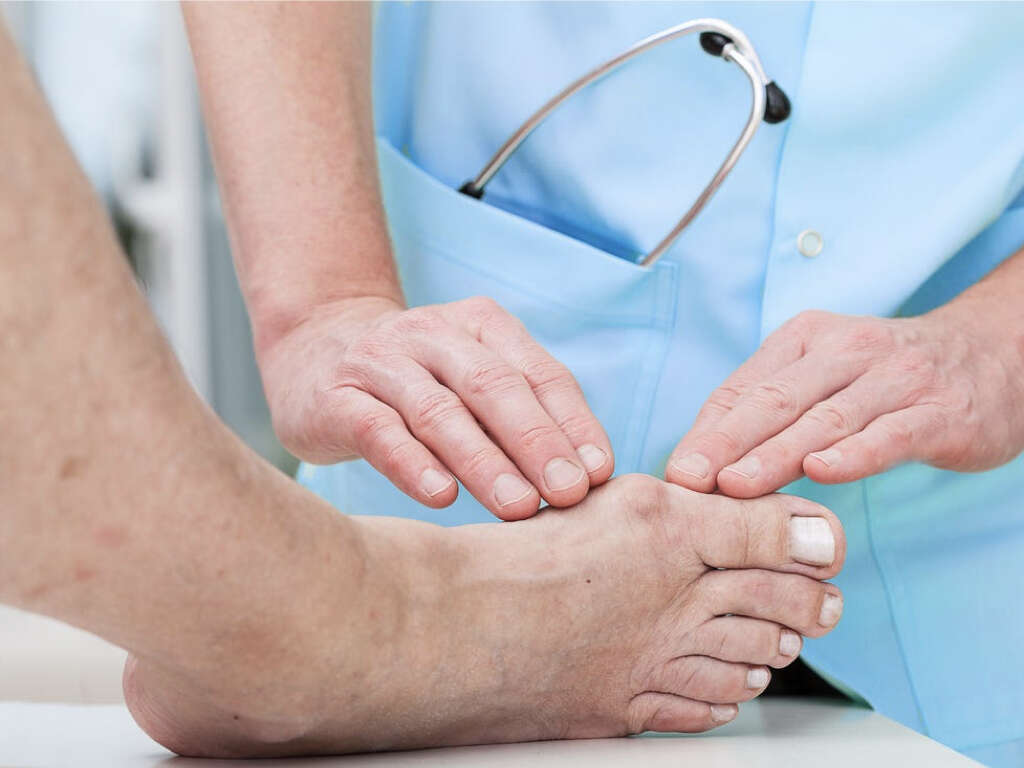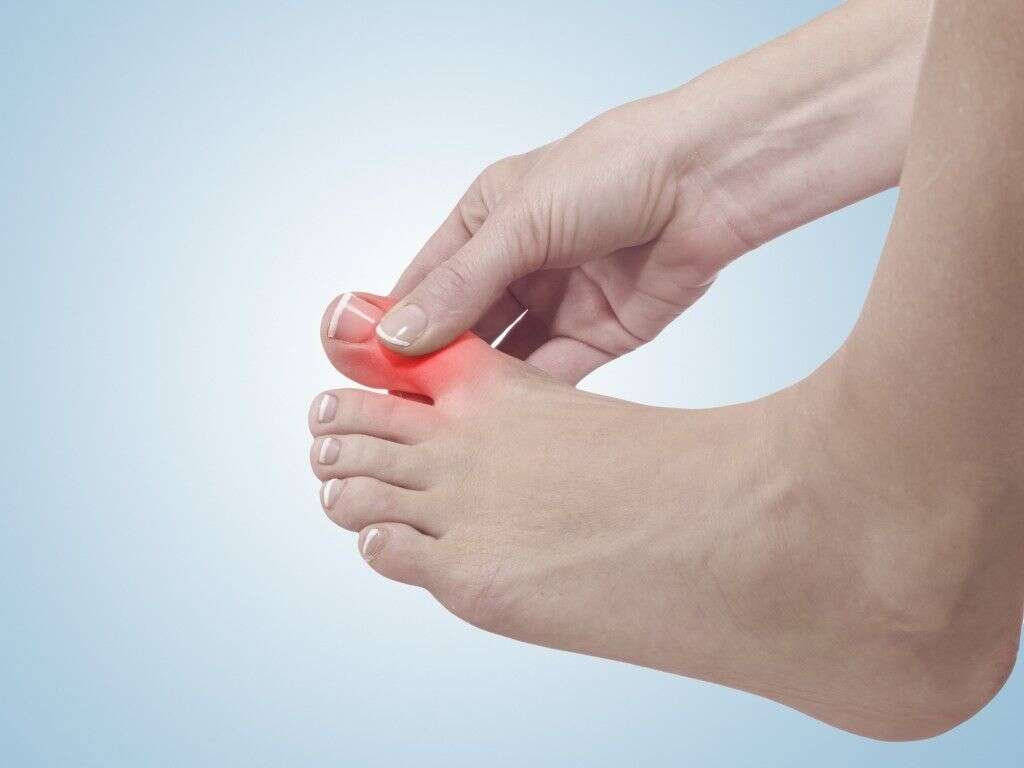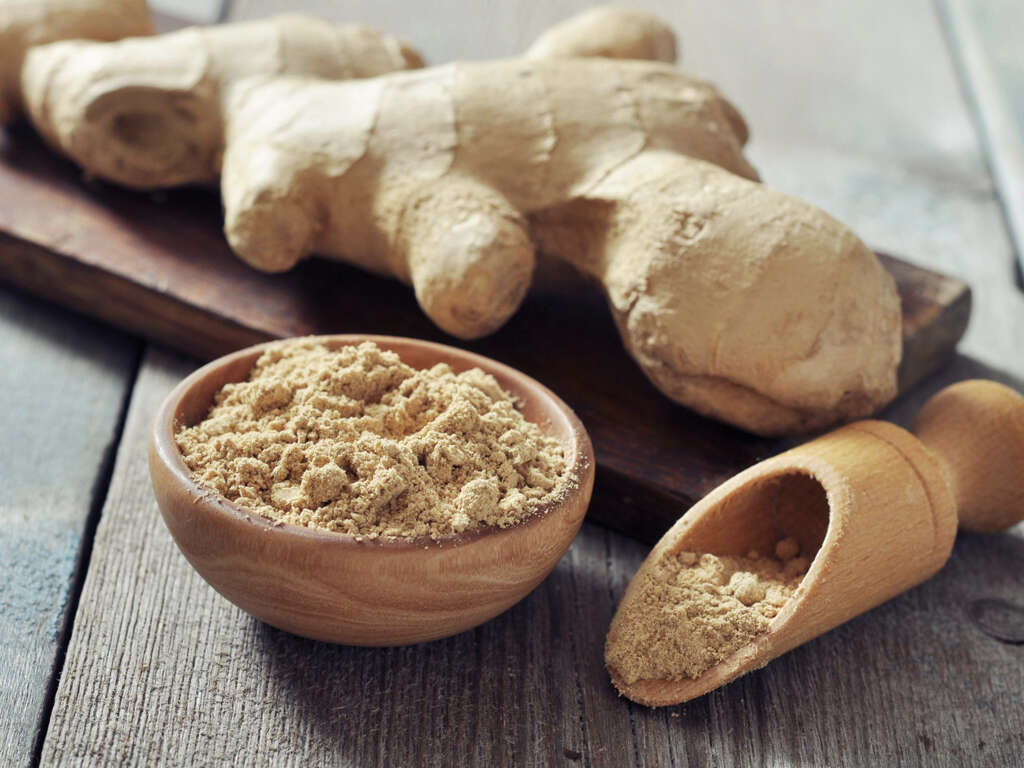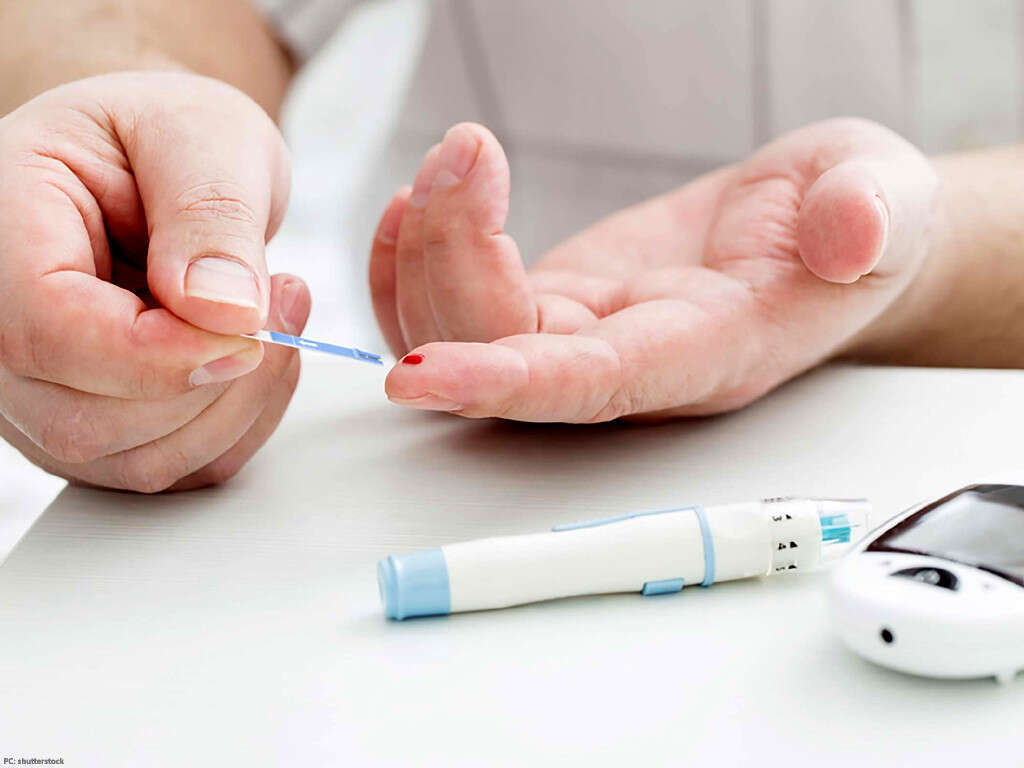10 Symptoms of Gout in Foot
Meats and seafood are delicious and rich in nutrients. They are important to us because they give us the building blocks we need to grow and repair our bodies. They are not without their drawbacks, though, and overdoing it can lead to health problems. Some of them serious. One condition that can be caused by overindulging in rich foods is gout.
Gout is a type of arthritis. It is caused by an excess of uric acid in the blood which can sometimes crystalize. These crystals can embed themselves in and around the joints of the foot, causing what we know as gout. It is not a dangerous condition, but it can be extremely uncomfortable.
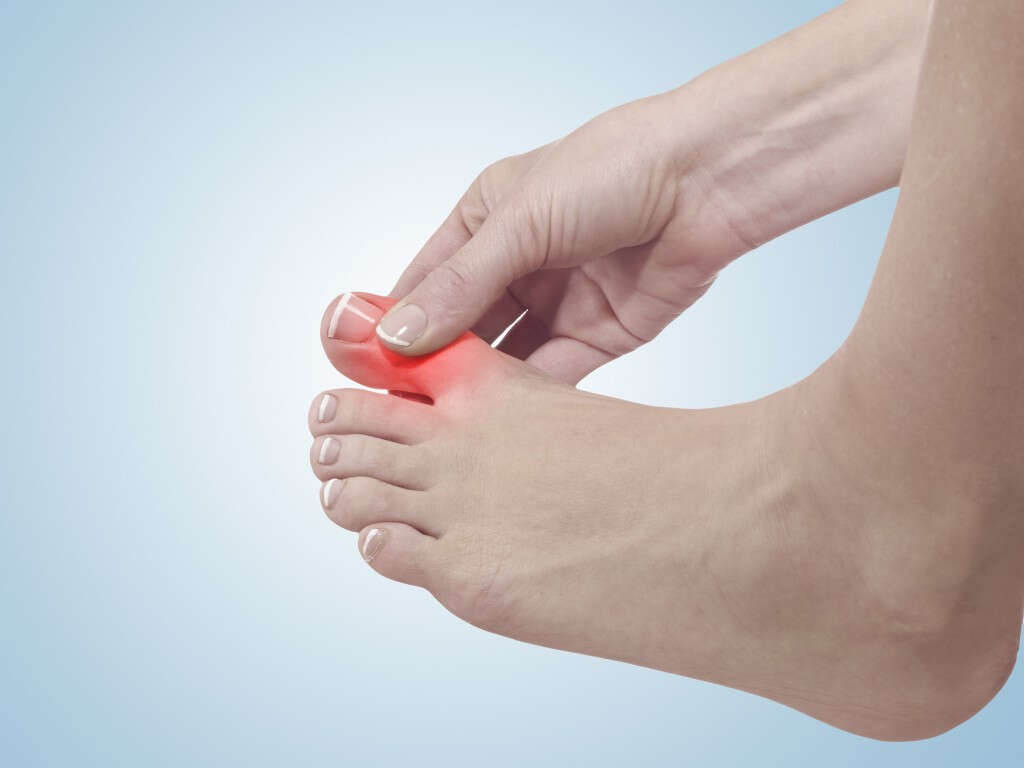
Symptom #1: Pain
One of the most telling symptoms of gout is the pain that comes with the condition. Patients will often complain that it is agonizing, leaving them willing to do just about anything to stop it. It can also be persistent, giving the patient little to no respite from the agony.
The pain is caused by tiny needle-like crystals becoming embedded into the joint and surrounding the soft tissues. It can be as though there are a million red-hot pins penetrating the joint. The good news is that the pain will pass once the condition has been treated. A doctor should be able to prescribe medication to help soothe the pain.

Symptom #2: Loss of Joint Mobility
The flexibility of our joints allows us to undertake some very complex movements. It is something we tend to take for granted but you will soon begin to miss it should your mobility be impaired. Many people will begin to lose their mobility on the onset of arthritis, and this includes gout.
People with gout in the foot will find it extremely difficult to move their toes. Even if it were not for the pain restricting them, they would find it difficult to move affected joints at all. Their mobility should hopefully be restored once the gout has been successfully treated.
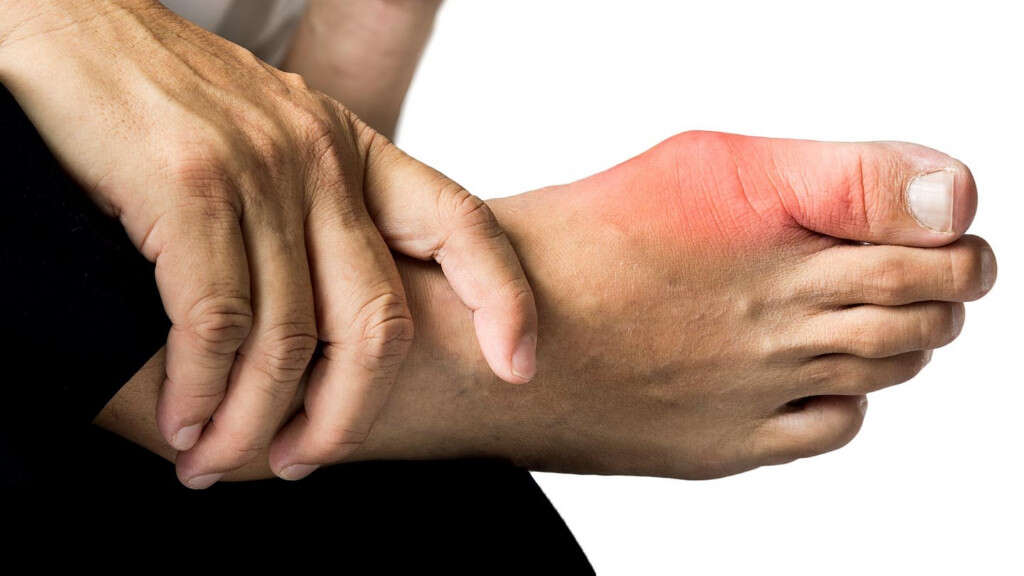
Symptom #3: Cannot Walk
It is important for us to be able to walk around freely. People with disabilities can use wheelchairs, although even then they can be reliant on others to push them around. If they are unlucky, even otherwise able-bodied people can find themselves unable to move around if they develop certain conditions.
The sheer pain of gout in the foot can make it very difficult for people to walk. Even with a stick or walking frame, the pain of putting any pressure on the joint can be too unbearable. It is common for patients to be laid up for most of the time until the condition can be successfully treated.
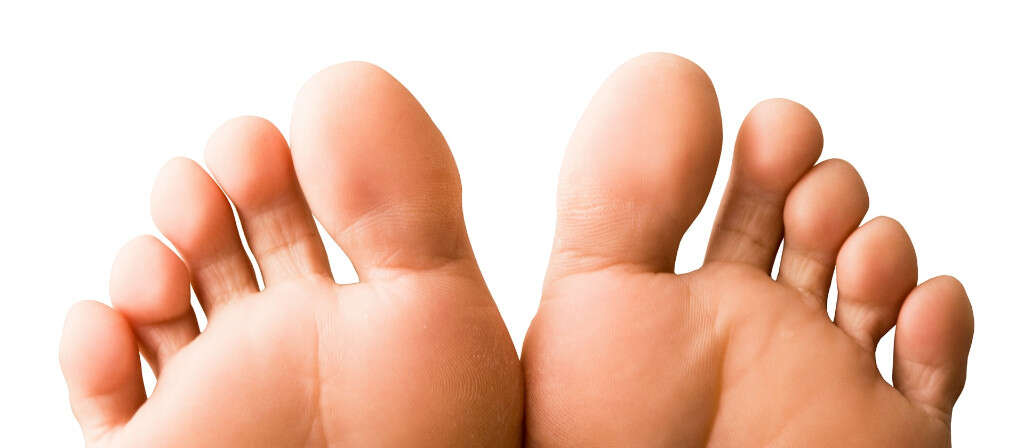
Symptom #4: Swelling
Swellings are caused by a number of things. Quite often, they are caused by the body’s natural defences flooding blood and nutrients to an area to try and fix a problem. They can also be caused when the soft tissues become irritated, which is what happens with gout.
Tiny, sharp crystals constantly digging into the soft flesh and joints can become extremely irritated indeed. This causes the tissues to become inflamed and swollen, causing the joint to become swollen also. The swelling can make it difficult for the patient to wear shoes. The swelling will go away once the gout has been treated.
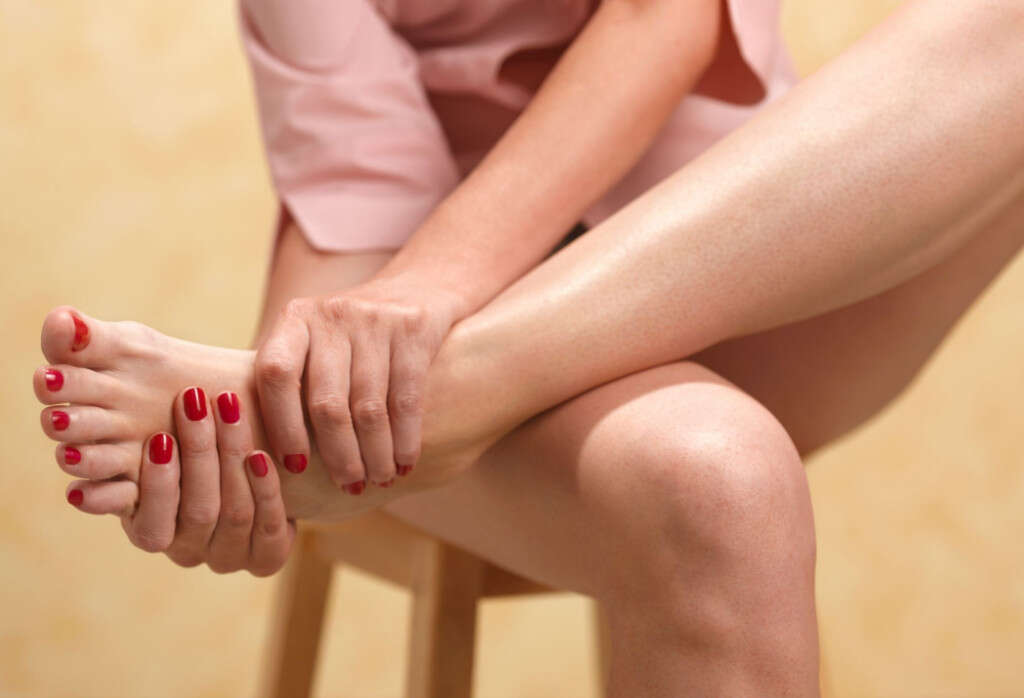
Symptom #5: Tenderness
Gout is painful, that much has been clearly explained already. The tissues surrounding the joint can become very tender and sore and touching it can make the problem even more painful. Even the slightest of touches can be agonizing and even clothing rubbing on the joint can be unbearable.
If you do have gout and you are suffering from such tenderness, it is wise to try and keep your foot in a safe place where it cannot come into contact with anything. Keep it away from people, pets or anything that might accidentally bump into it. Your doctor may be able to help you with medication to help soothe the pain.
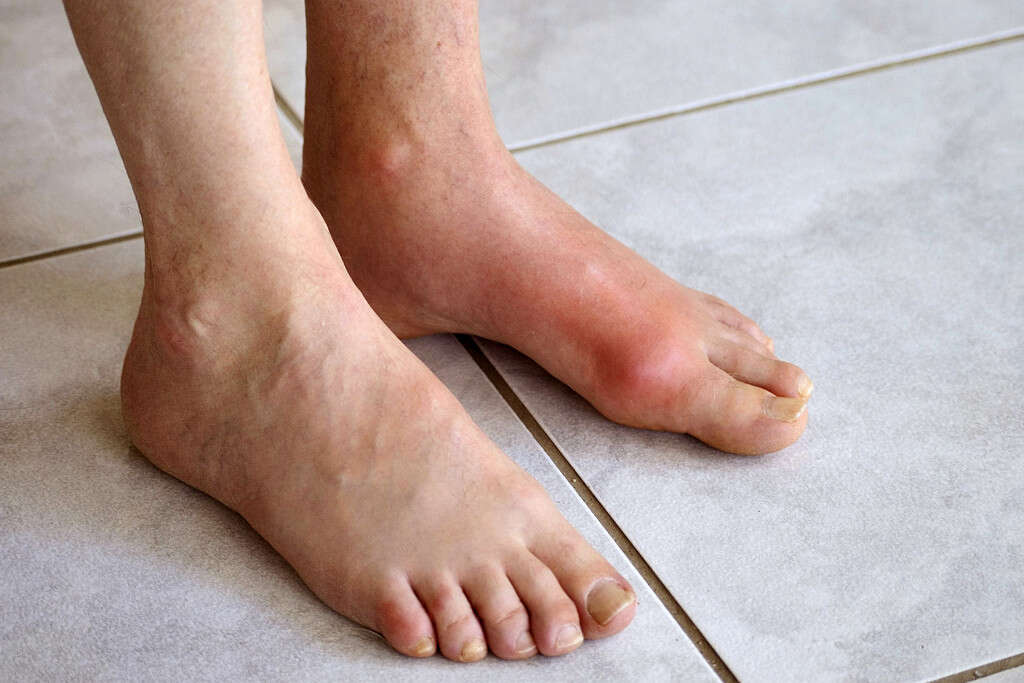
Symptom #6: Hot
Our bodies are naturally quite warm. We are able to generate this heat by metabolizing the food we eat and we can remain warm even when we are in a cold environment. We tend to keep our bodies at a certain temperature, though, and there could be something wrong if we are too hot.
When we have gout, the tissues will become inflamed and hot. The body will also be sending lots of blood to the area to try and deal with the problem, adding to the heat. Although such heat is a symptom of gout, the other symptoms would likely have made you aware of the condition already by now.
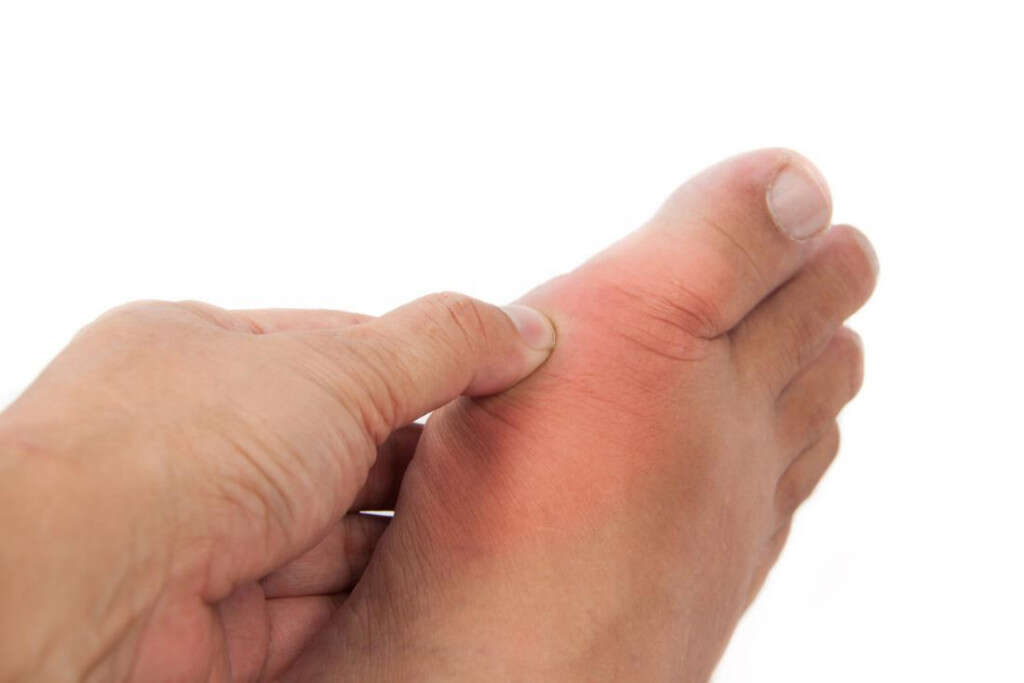
Symptom #7: Red Skin
Just a quick glance at the skin can tell us a great deal about a person’s health. While we tend to have different tones and colors to our skin anyway, there are still some examples of when its color quite clearly indicates something is wrong. Such examples include when the skin is very white, or when it is very red.
If you have gout, the area around the joint is likely to become very red indeed. You might also find that the skin takes on a shiny appearance. The redness is partly because of the increased volume of blood in the area. Once gout subsides, though, the redness and the shininess should disappear.
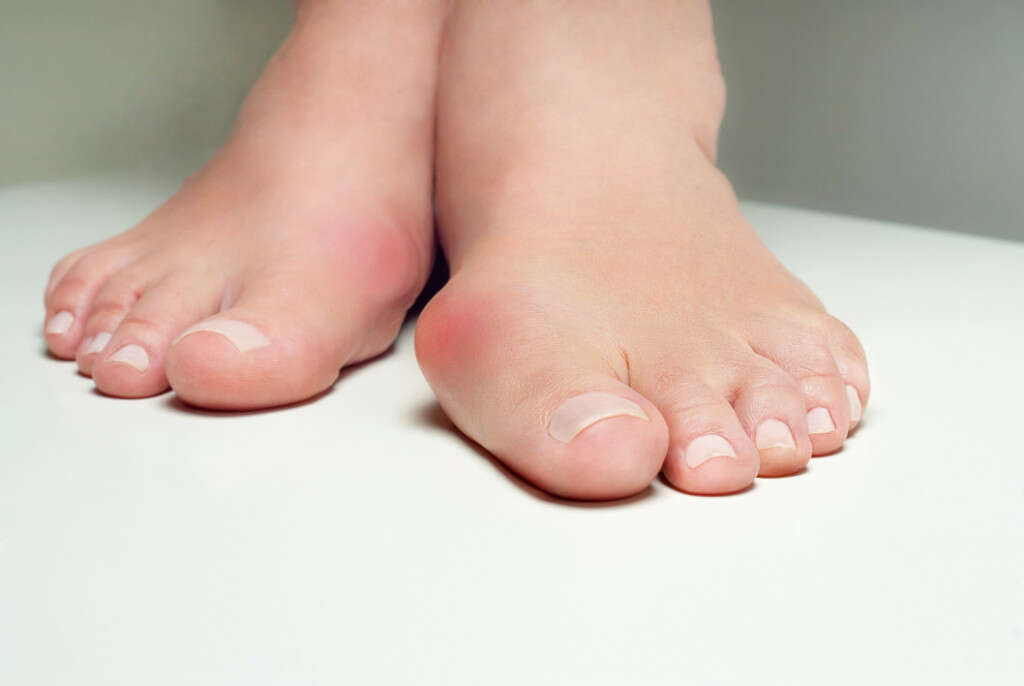
Symptom #8: Flaking Skin
When a part of the body becomes swollen, so the skin surrounding it becomes stretched. Although reasonably stretchy, the skin can become damaged and die as it is stretched too much. When this happens, the surface will sometimes become flaky as the dead skin cells fall away.
This flaking will likely worsen when the swelling begins to fade. The skin will be trying to repair itself and new skin cells will be replacing the old. The new skin cells forming and displacing the old ones can also cause the area to become itchy. These symptoms will pass once the skin is healed.
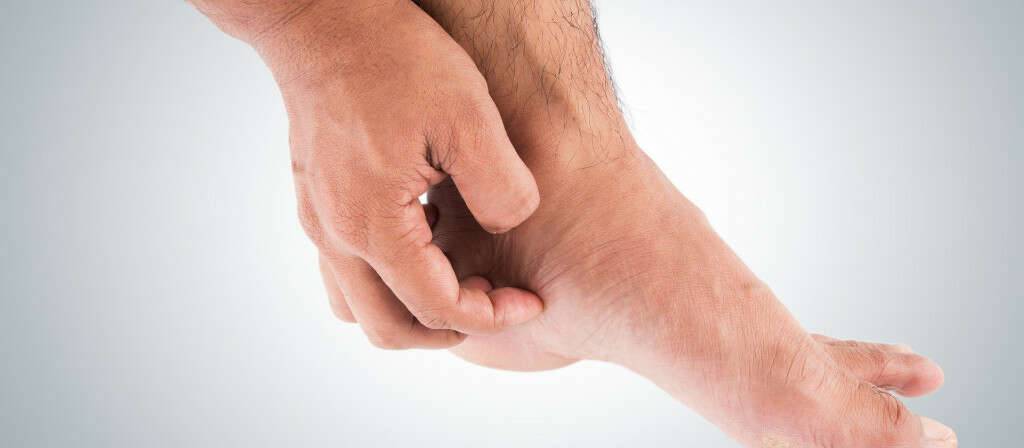
Symptom #9: Trouble Sleeping
Sleep is important to us, but it can sometimes be difficult to sleep no matter how much we might want to. When you have a condition like gout, sleeping can be very difficult indeed. The constant pain can make it almost impossible to sleep, making it so much harder to bear the condition.
When trying to sleep with gout, try to keep the joint protected. This can prevent it from being knocked into, which could be painful enough to wake you. If a lack of sleep is becoming a real problem for you then your doctor might be able to help. You can also try looking on the internet for home remedies that might help.

Symptom #10: No Symptoms
For some very lucky people, gout causes no symptoms at all. No pain, no swelling, nothing. It can take weeks, months or even years before the condition is discovered, with the patient being blissfully unaware up until it is. Of course, this will be of little consolation to those that do experience the symptoms listed above.
In some cases, gout is discovered by chance. For example, a standard check-up and blood test can reveal a high level of uric acid in the blood. If you have discovered you have gout and you have no symptoms, you should still get it treated. You don’t know when the symptoms might begin, at which point you will regret not dealing with it sooner.




